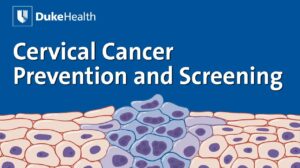NEW YORK (Reuters Health) – Very small breast tumors that generate extensive lymph node involvement may be more biologically aggressive than larger tumors with the same degree of lymph node involvement, a study indicates.
“Traditionally, larger tumor size and increasing lymph node involvement have been considered independent predictors of increased breast cancer-specific mortality,” Dr. Rinaa Punglia, from Dana-Farber Cancer Institute in Boston and colleagues point out in the May 23 online issue of the Journal of Clinical Oncology.
But they’ve found that women with very small tumors and at least four positive lymph nodes have a far greater risk of dying of breast cancer than women with larger tumors and at least four positive nodes.
“Our study adds to the growing literature that tumor biology may be a more significant predictor of mortality over traditional measures such as tumor size,” Dr. Punglia told Reuters Health. She said women with very small tumors and significant lymph node involvement “should be treated aggressively.”
Using the Surveillance, Epidemiology and End Results (SEER) registry, the researchers identified 50,949 women diagnosed between 1990 and 2002 with nonmetastatic T1 and T2 invasive breast cancer and treated with surgery and axillary lymph node dissection.
A total of 6,997 of them (13.7%) died from breast cancer during a median follow up of 99 months.
Among women with four or more positive lymph nodes (N2), those with smaller tumors (T1a) had higher breast cancer-specific mortality (hazard ratio, 20.66 vs. 12.53; reference = T1aN0) than those with larger tumors (T1b), the study team found. This association of smaller tumor size and higher breast cancer-specific mortality was not seen in patients with less extensive nodal involvement.
Estrogen receptor (ER)-negative patients with smaller tumors and extensive nodal involvement (T1aN2+) also had a higher risk of dying from breast cancer (hazard ratio, 24.16) compared with those with ER-negative T1bN2+ disease (hazard ratio, 12.67). This was difference was not seen in ER-positive patients.
In a linked commentary, three researchers from Memorial Sloan-Kettering Cancer Center in New York City say this study yields the “provocative” observation that, despite their size, very small tumors may be highly aggressive, more so than larger tumors.
In essence, it suggests that “biology trumps anatomy,” write Dr. Elizabeth Comen, Dr. Larry Norton, and Dr. Joan Massague.
“Simple anatomic reasoning,” they conclude, “may not be the most productive way forward in understanding the clinical behavior of cancers and hence prognostication. Elucidating the molecular mechanisms that underlie the biology of individual cancers would seem to be a more useful focus of our attention.”
Dr. Punglia and colleagues say their study also supports a growing body of literature showing that African American women have worse breast cancer-specific outcomes, even after adjusting for other known prognostic factors. In the study, African American race was an independent predictor of increased breast cancer-specific mortality (HR, 1.45).
The study also highlights the decrease in breast cancer-specific mortality over time; more recent year of diagnosis was an independent predictor of lower breast cancer-specific death (P < 0.001). The study also supports the “excellent” prognosis for patients with small node-negative disease, with an unadjusted 8-year breast cancer-specific survival of 93.3%.
J Clin Oncol 2011.




